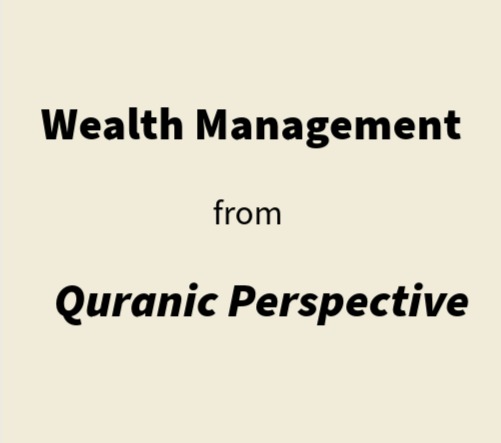By Qasim Abbas
Wealth encompasses cash, bank balances, jewelry, property, investments, trademarks, goodwill, franchises, etc. It plays a crucial role in human life, business, commerce, and politics. The Holy Quran addresses various functions of wealth using the Arabic word “Maal” (plural “Amwaal”).
Recording Financial Transactions
Verse 2:282 instructs believers to document financial transactions that span a specified period and to have witnesses. It provides detailed guidance on the procedure for recording these transactions.
Forbidding the Illegal Acquisition of Wealth
Verse 4:29 prohibits acquiring wealth through illegal means. Additionally, Verse 2:188 commands not to influence authorities, such as judges or lawmakers, to obtain others’ wealth unlawfully. This includes government property regarded as public or tax money.
Wealth as a Test in Life
Verses 8:28 and 64:15 caution that wealth can be a test or temptation (Arabic: “fitnah”) in human life. Wealth often leads to conflicts, litigation, and other problems due to improper planning, highlighting its role as a significant test in life.
Wealth as Worldly Decor
Verse 18:46 describes wealth as a form of decoration or ornamentation in human life. However, it emphasizes that good deeds are better and bring the best rewards from the Lord.
Best Use of Wealth as Charity
Verses 2:215, 2:274, 3:92, and 17:29 command believers to spend part of their wealth in the cause of Allah. Verse 63:10 urges spending wealth in charity before death. Verses 2:254 and 14:31 also encourage charitable spending before the Day of Judgment.
Overspending of Wealth
Verses 6:141, 7:131, 17:26, and 17:27 advise believers against unnecessary expenditures.
Underspending of Wealth
Verse 17:29 warns against miserliness and undue hoarding of wealth.
Wealth in Excess of Requirement
Verse 2:219 instructs to spend excess wealth in the cause of Allah.
Wealth for the Cause of Allah
Verses 2:261 to 2:265 caution against using charity to show off or to impose generosity and obligations on others.
Wealth to Attain Righteousness
Verse 3:92 asserts that to achieve righteousness, one must spend in the cause of Allah from what they love most, which often includes wealth.
Greed for Wealth
Verses 102:1 and 102:2 highlight that excessive greed for wealth distracts people until the end of their lives.
Hoarding of Wealth
Verses 104:2 and 104:3 criticize those who hoard wealth, thinking it will stay with them forever. In reality, wealth passes to others after death.




